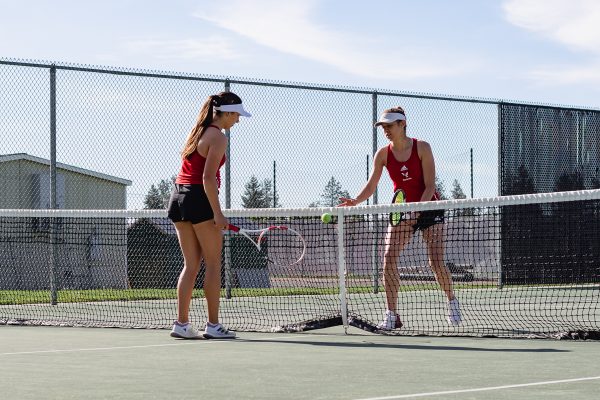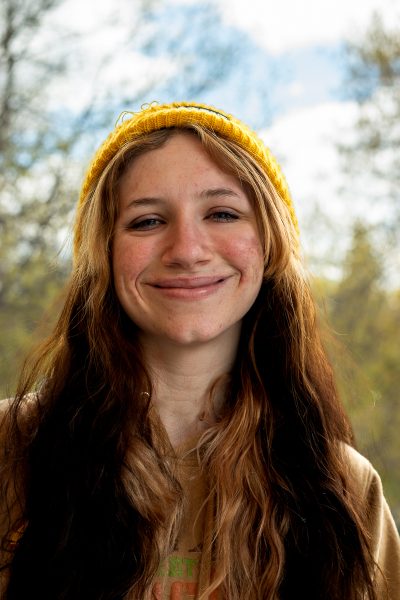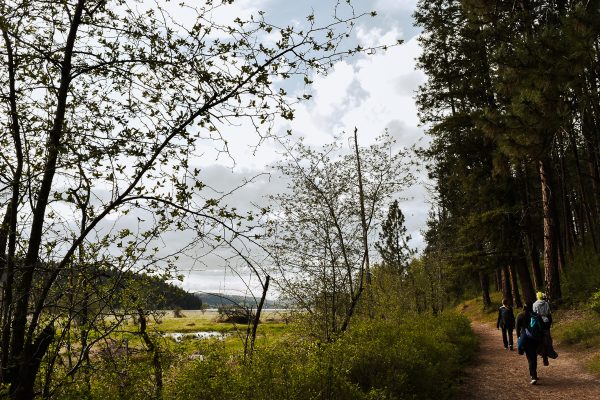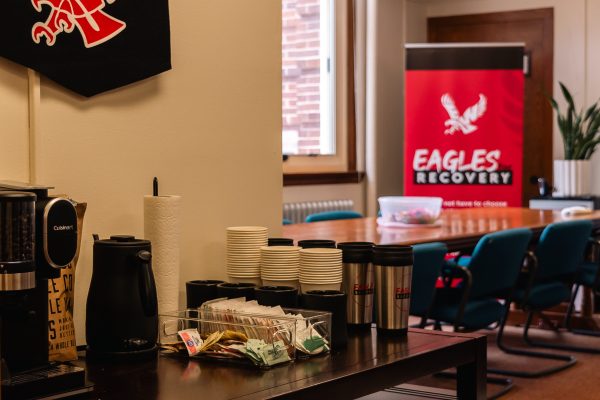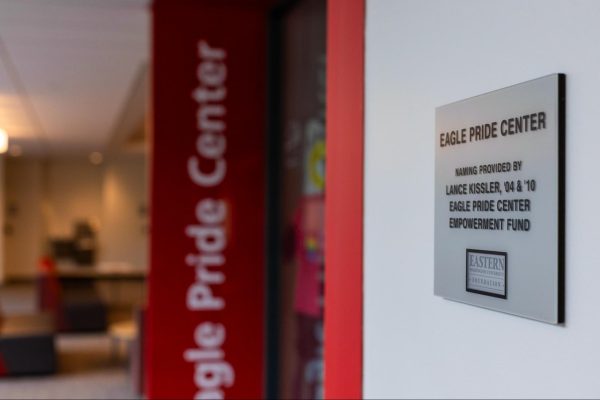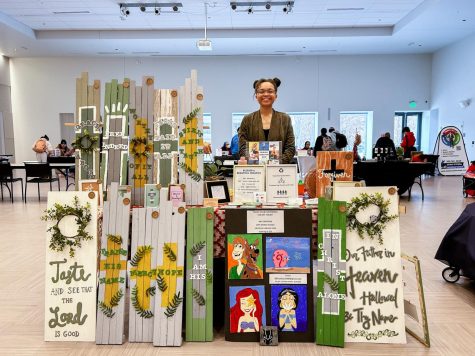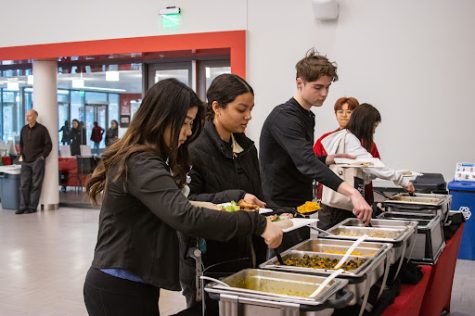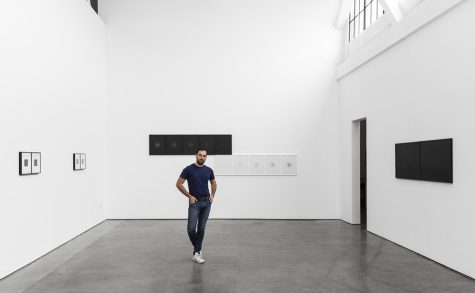Diversity week educates students
May 29, 2014
By Rebekah Frank
The Hargreaves Reading Room was full on May 20-21 as students, faculty and community members listened to speakers’ experiences with discrimination, biases and racism.
On May 20, the city of Spokane’s director of local government and multicultural affairs, Gloria Ochoa, shared her personal experiences with stereotypes and racism.
Ochoa shared that one of the times she was defending a client, she was asked by a U.S. Marshall who she was there to see. He assumed because she was a Latino woman dressed up in court that she was either a defendant or a family member of a defendant.
After sharing her story and the stories of others, Ochoa expressed the importance of education on the values and beliefs of other cultures. Ochoa said if people are willing to learn about different cultures, then they will have a better understanding of what could be considered discrimination and racism.
Ochoa emphasized that people should look at their own biases and be aware of them. Ochoa acknowledged her own biased thought of a good mother because her mom, after being sexually assaulted, decided to keep Ochoa and worked hard to make a life for her and her siblings.
Ochoa said that when she is overseeing a trial that involves children, she constantly has to remind herself to keep her own biases out of her decisions. She reminded the attendees that it is important for everyone to be honest with themselves and why they think and act the way they do.
Joetta Sieglock, who works for the EWU Disability Support Services, said, “It’s important for us to each understand how diverse we all are in different ways.”
On May 21, there were seven diversity lessons presented in the Hargreaves Reading Room. They ranged in topics from gender variance in the K-12 classroom to perceptions of stuttering.
The third lesson was presented by LaToya Brackett, EWU Africana coordinator for the Africana studies program. She gave a lesson on racial microaggressions, the new subtle form of racism.
Going through her PowerPoint slides Brackett gave definitions to common words such as racism, discrimination and bias. As she went through these definitions, Brackett pointed out that many people discriminate without even knowing they are being racially biased.
She presented pictures of students from Harvard University holding up white boards with sentences written on them explaining the racially biased statements people have said to them or about them. Some of the phrases were, “Can you read?,” or in the case of a black man wearing head phones, “No, it’s not rap.”
Brackett said these students are being asked these questions even though they were accepted into Harvard University. These are subtle forms of racism that make up racial microaggressions. Brackett said that an EWU student admitted that one of her peers said she was very literate for a black person.
“I asked some of the students if they had experienced racism. They were like, ‘No, it’s cool,’ and then I was like, ‘Have you ever experienced something more subtle?’ And they said, ‘You know what, yeah,’” Brackett said.
Brackett explained that people who are targeted for racial biases need to respectfully enlighten those who are committing the act. She said that many people who commit acts of racial biases are not even aware that they are doing it.
“If someone is feeling that something is racially biased, you need to recognize that they have the right to have that feeling. They need to be willing to hear what people have to say and not just say ‘I am not racist’ and, ‘You’re pulling the racist card,’” Brackett said.
Brackett said that everyone needs to be open to learning. Nobody likes to be told that they are hurting someone else with their words or actions, but they also need to realize it is hard for the other person to speak up.
“They actually have the courage to tell you that, so instead of demeaning them by telling them ‘No, it’s not true,’ listen to them. Listen, be attentive, be honest with yourself and with them,” Brackett said.
Many people were sharing their own personal experiences and how touched they were by what they had just learned. One woman said after 9/11 she was very biased toward people at the airport who looked suspicious, especially those people who, in her opinion, looked like terrorists.
“I think it definitely brings something that not a lot of people [want to] talk about,” said EWU graduate student Amanda Jacobs. “I think people need to know more about these kinds of experiences and recognize that everyone has something to bring.”
Kara LaSota, immigration and retention specialist at the EWU Office of Global Initiatives, said she believes these events are great for everyone, no matter what occupation or personal experiences they have.
“I don’t think it’s just about students; I think it’s about students, faculty and staff. Microaggression is an issue that is really common. This gives people a safe place to learn about it and maybe bring it into awareness,” LaSota said.
Brackett reminded the attendees that she has flyers with information and resources for people who have been discriminated against and for those who may be discriminating but not know it. She said those who are being targeted need to pick and choose their battles. Sometimes it is easier to just agree to disagree.
“Be willing to teach, if they’re willing to listen,” Brackett said.



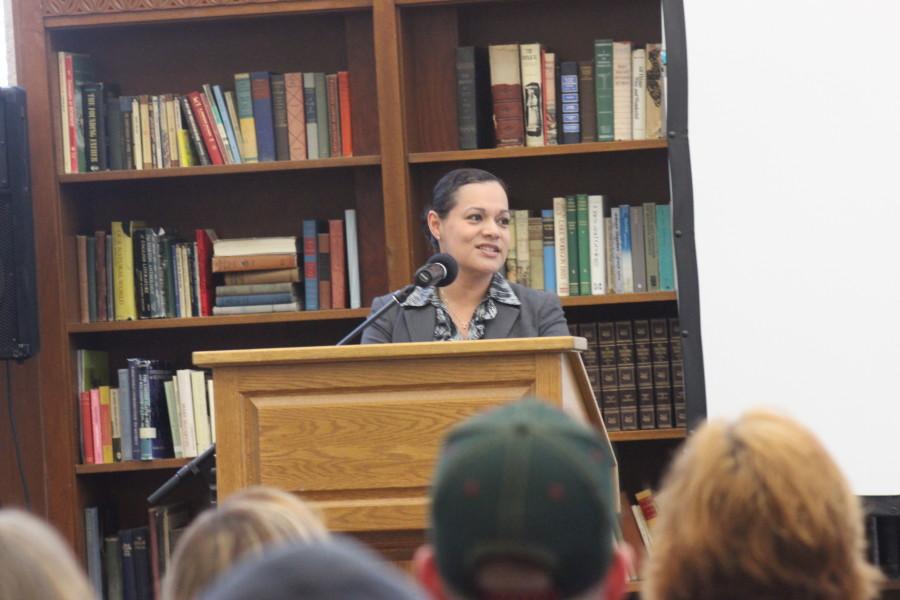


![Simmons said the biggest reasons for her success this year were “God, hard work, and trusting [her] coach and what she has planned.”](https://theeasterner.org/wp-content/uploads/2024/05/image1-1-1200x800.jpg)

